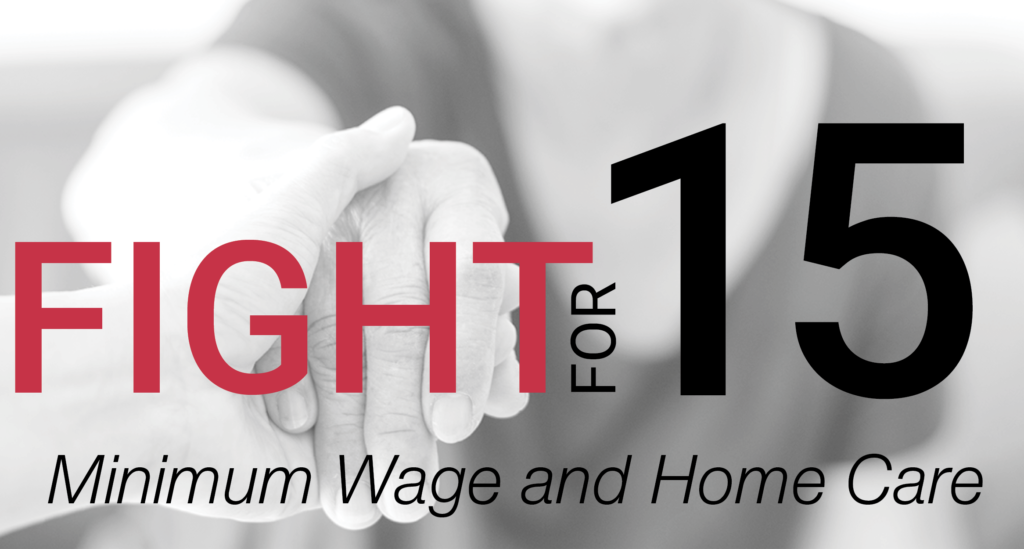Preparing for the Minimum Wage Hike

On January 14, 2021, prior to his inauguration, President Joe Biden introduced a $1.9 trillion COVID-19 relief package. On January 26th, Democrats introduced the Raise the Wage Act, both include raising the minimum wage over a period of five years to $15 an hour. On February 4, the Senate approved a measure prohibiting an increase of the federal minimum wage during the global pandemic. This does not mean the “fight for 15” is over. House Speaker Nancy Pelosi said the Democrats would not abandon the cause. Many lawmakers, including other Democrats, are opposed to a $15 increase but are open to something “responsible and reasonable”.[i] How will this end? No one knows but what can be certain is the minimum wage will go up.
Many would agree a raise to the federal minimum wage is warranted, but the amount continues to divide the country. The fear is that lawmakers are not considering the total effect of almost doubling the federal minimum wage. Any increase should be reviewed with multiple lenses. Medicaid and Medicare reimbursements as well as VA benefits should also be evaluated in comparison to whatever the minimum wage becomes. If it does not, people who mainly rely on these benefits to help or pay for home care will lose needed care. Agencies need to reach out to their senator and members of Congress to ask them to review in totality what impact a jump in minimum wage will have on the elderly population.
The SEIU (Service Employees International Union) has been fighting for a $15 minimum wage since 2012. With the early push from the new administration and a recent win in Florida, the SEIU has picked up steam. Therefore, the fight will continue, and the home care industry must get ready.
Many families are choosing home care over congregate settings due to the pandemic, and many experts say it will continue for many years. What can you do to prepare for the potential increase in wages? Below are six action items you can implement now to lessen the impact.
Reduce Expenses
Take a step back and look at your expenses. Are there areas that can be reduced or scaled back?
- Office supplies can add up quickly. Take an inventory and buy in bulk. Take advantage of sales around the start of school and large discount suppliers.
- Review your insurance provider’s cost and shop for more competitive rates. Also, make sure you’re adequately insured and not duplicating coverage.
- Evaluate rent and building expenses. Is the space the right size for your agency? Are there less expensive locations?
Begin increasing your caregiver wages
Put your agency on a phase into $15 per hour. If the Raise the Wage Act should pass, it will raise the federal minimum wage to $9.50 immediately and increase each year until it reaches $15 per hour. Build in the increases just ahead of the federal increase. For example, if you currently pay your caregivers $10.00, you will exceed the first raised minimum wage but increase your caregiver wages anyway to $11.00 by the end of the year. In 2022, budget two increases to take you to $12.00. Do this again for 2023 and 2024, adjusting slightly ahead of the projected minimum wage. By doing so, the increase will be a company planned increase instead of a panic adjustment to meet the new minimum wage.
Increase your private pay rates
Phase in an increase alongside the minimum phase-in amount. For example, if you raise your caregiver wages by $1.00, raise your private pay rate by $1.50 over a year. Build out the next four to five year’s private pay rates.
Increase minimums
The days of short shifts may be a thing of the past. Keeping your caregivers in one or two locations a day will reduce mileage expenses and work to your advantage on caregiver retention.
Evaluate office positions
Many times, agencies can be over staffed in their office. Evaluate staff positions to determine if all positions are needed or if they are needed full-time.
Add technology
Technology has been pushed to the forefront during the pandemic. It has been proven to be an effective tool both for meetings and in healthcare. Telehealth, medical response systems and video/audio conferencing can reduce visits and care hours. Connecting your agency with technology will allow a broader offering and reduce staffing cost.
Even though the minimum wage likely will increase, the good news is there will be a phase in period which will give you time to adjust. But don’t wait to take action until a law is passed. Start now and prepare your agency to make the adjustment. By doing so, an agency will make the changes gradually setting up a solid foundation for a successful future.
[i] https://www.npr.org/2021/02/05/964020654/senate-says-no-to-15-minimum-wage-for-now-but-democrats-vow-to-push-on
